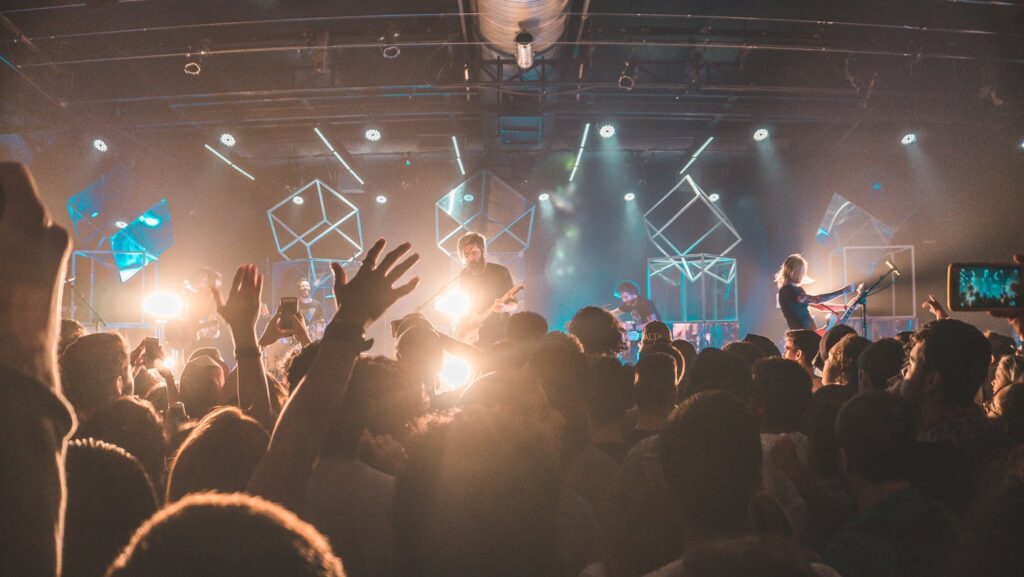Latin pop artists have taken the music industry by storm in recent years, infusing their vibrant culture and catchy tunes into the global music scene. With their infectious rhythms and heartfelt lyrics, these artists have captured the hearts of listeners worldwide. From chart-topping hits to sold-out concerts, Latin pop stars have proven their undeniable talent and staying power.
In this article, we delve into the world of Latin pop artists, exploring the rise of iconic musicians who have redefined the genre and captivated audiences with their unique sound.
Evolution of Latin Pop Music

Latin pop music has a rich history that can be traced back to the early influences and origins of Latin American rhythms. The fusion of traditional Latin music with Western pop elements gave birth to the vibrant genre known as Latin pop. Artists like Ritchie Valens and Julio Iglesias played a pivotal role in laying the foundation for Latin pop with their unique blend of catchy melodies and Spanish lyrics. The rhythmic beats of salsa, cumbia, and merengue intertwined with pop sensibilities, creating a musical style that resonated with audiences worldwide.
The 20th century witnessed key developments in Latin pop music that propelled the genre to the global stage. The crossover success of artists like Gloria Estefan and Ricky Martin brought Latin pop into the mainstream, blending Latin rhythms with contemporary pop sounds. The emergence of music videos and the influence of MTV further amplified the reach of Latin pop artists, allowing them to connect with fans on a visual and auditory level. The evolution of technology also played a crucial role, making Latin pop music more accessible through digital platforms and expanding its audience base across borders.
Latin Pop Artists

Shakira, a Colombian singer-songwriter, has left a significant mark on the Latin pop music scene with her dynamic vocals and energetic performances. With hits like “Hips Don’t Lie” and “Whenever, Wherever,” she has captivated audiences worldwide, blending Latin influences with pop and rock elements. Shakira’s unique voice and distinct style have earned her numerous awards, including multiple Grammy Awards, making her one of the most successful Latin pop artists of the 21st century. Her impact extends beyond music, as she actively engages in philanthropic work through her Barefoot Foundation, focusing on education and healthcare in vulnerable communities.
Enrique Iglesias, known as the “King of Latin Pop,” has played a key role in reviving the romance ballad genre in Latin pop music. Son of legendary singer Julio Iglesias, Enrique rose to fame with hits like “Hero” and “Bailando,” showcasing his smooth vocals and heartfelt lyrics. His ability to connect with audiences on an emotional level has made him a beloved figure in the music industry. With multiple chart-topping singles and albums, Enrique Iglesias has solidified his position as one of the top Latin pop artists of the 21st century, continuing to enchant fans with his soulful ballads and infectious rhythms.
Contemporary Trends in Latin Pop

Latin pop artists continuously evolve by incorporating elements from various music genres, creating a unique fusion that caters to diverse audiences. By blending Latin rhythms with reggaeton, hip-hop, and electronic dance music (EDM), artists like J Balvin, Bad Bunny, and Maluma have propelled Latin pop into the mainstream. Their collaborations with international stars like Cardi B, Beyoncé, and Drake have blurred musical boundaries, attracting a global fan base. This fusion not only reflects the artists’ versatility but also demonstrates the genre’s adaptability to current music trends.
The emergence of reggaeton and urbano music genres has significantly influenced the Latin pop scene in recent years. Artists such as Daddy Yankee, Ozuna, and Karol G have integrated reggaeton beats and urbano flair into their music, contributing to the genre’s explosive growth. Reggaeton’s popularity, characterized by its infectious rhythms and catchy hooks, has transcended language barriers, garnering widespread acclaim worldwide. Latin pop artists embracing reggaeton and urbano elements have redefined the genre, infusing it with urban sounds and creating a vibrant musical landscape that resonates with contemporary audiences.
